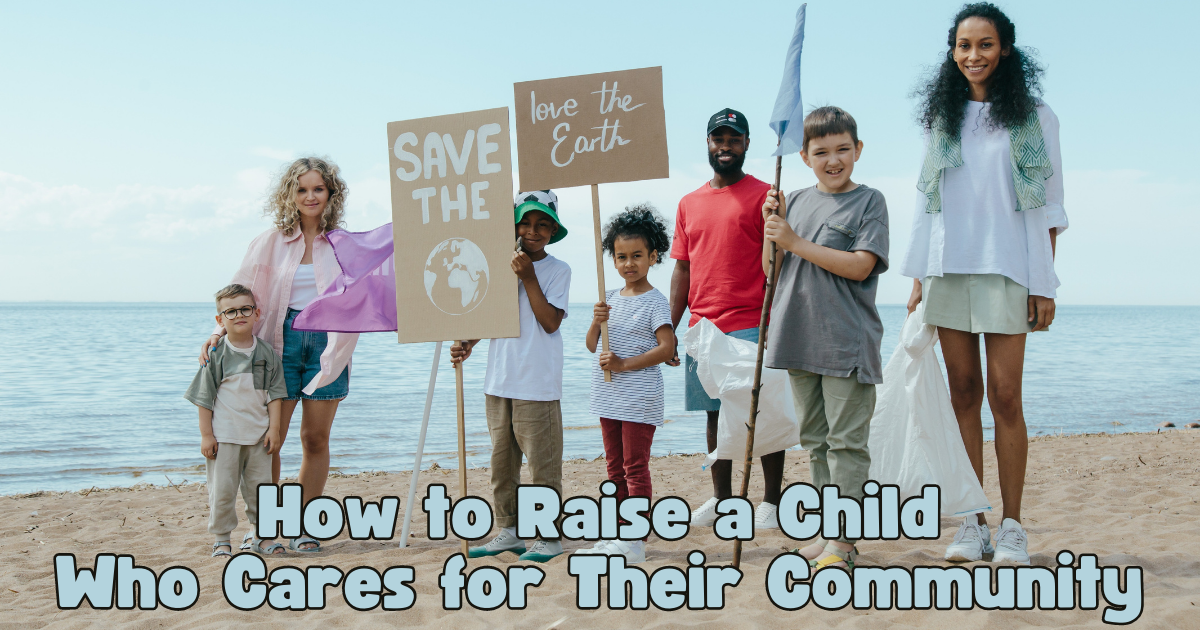|
Guest post provided by Stamford American International School
As the world grows increasingly globalized and interconnected, it’s becoming more crucial than ever to foster a sense of community in children. Community-mindedness can act as a moral compass, guiding them to become more empathetic and respectful individuals. It helps them develop a sense of belonging and instills values that nurture positive relationships. Interacting at length with their society paves the way for children to learn valuable lessons that they’ll likely use throughout their lifetime.
When it comes to developing community-mindedness and social consciousness in children, the parent’s role extends far beyond the confines of the home. Parents are the primary architects in developing children's understanding and care for the world outside their personal sphere. If you’re only just beginning this journey with your child, know that it requires effort, consistency, and dedication. However, rest assured that the rewards are immeasurable as you watch your child grow into an engaged and responsible citizen. Here are four concrete things you can do to raise a community-minded child:
1. Send Them to a Community-Oriented School
A child’s school life involves much more than their academic performance. It's also about fostering an environment that encourages children to care about the world around them, especially considering that the school is likely to be the child’s first brush with larger society outside of the home. A community-oriented school that incorporates service-learning programs can thus be instrumental in nurturing these values. Service-learning is an educational approach that combines learning objectives with community service. It provides students with concrete opportunities to help address community needs, thereby developing their sense of social responsibility. Service-learning activities give children the opportunity to apply what they learn in the classroom to real-world problems, transforming these lessons from mere abstract concepts to highly relevant parts of their lived experiences. When choosing a school for your child, consider its approach to community engagement. Look for schools that have strong relationships with community organizations and promote participation in local events. The best international schools in Singapore, for instance, will likely have robust service-learning programs to help keep your child active and socially involved throughout their formative years.
2. Talk with and Show Appreciation for Community Members
As social beings, people understand and connect with the world through interaction, and children are no different. Encourage your child to converse with various community members, from the friendly postman who brings daily letters to the diligent street sweeper who keeps the surroundings clean. These interactions can enhance their understanding of the different roles people play in keeping a community thriving. Teaching your child to express gratitude towards the people who help them every day is a simple yet powerful way of fostering respect for other people. Urge them to say 'thank you' to staff members at their school or service workers in shops and restaurants. Also show your appreciation and respect for the people around you openly because children learn best by observing the actions of those around them. Moreover, consider setting up opportunities for deeper engagement. Maybe your elderly neighbor has stories to share about the community's history, or the local baker can teach your child about the baking process. These experiences can enrich your child's understanding of their community and the diverse individuals who contribute to its fabric.
3. Teach Them about Politics and Social Issues
It’s never too early for children to start learning about the political and social structures that influence community life. Teaching them about these issues early on promotes active citizenship and helps them realize that their actions can make a difference in their society, even in small ways. Start with the basics of politics, such as what a government is, the importance of voting, and how laws are made. Use child-friendly resources such as books or educational TV shows to illustrate these concepts. Over time, you can ease your child into deeper discussions about more complex political and sociological concepts such as human rights and social justice. When discussing social issues, find ways to relate them to your child's experiences. For instance, don’t shun or shield your child from homeless people and instead use encounters with them as opportunities to talk about poverty and social services. Discuss news stories that highlight issues like pollution, racism, or gender inequality. Remember to keep these discussions age-appropriate, focusing on fostering empathy and understanding rather than overwhelming them with complex issues and technical jargon.
4. Find Age-Appropriate Volunteering Opportunities
Volunteering offers a hands-on approach to community engagement and allows your child to contribute to their community in tangible ways. In the process, they’ll also develop a range of useful skills such as teamwork and problem-solving. Look for volunteering opportunities that are appropriate for your child's age and interests. If your child finds they care deeply about environmental issues, for example, consider signing them up for a local tree-planting project. If they’re good with people, meanwhile, they could help out at a food bank or spend time with elderly residents at a nursing home. Volunteering not only teaches your child about the value of service, but it can also expose them to diverse experiences and perspectives. They’ll have the opportunity to interact and even form relationships with people from a wide array of social and cultural backgrounds, many of whom they likely would have been unable to meet otherwise. Raising a child who cares for their community is a rewarding journey that pays abundant dividends for their character development. Empower your child with the right tools and experiences, and they'll undoubtedly find ways to contribute positively to their society both as they grow up and well into adulthood.
0 Comments
Leave a Reply. |
About ME:I'm a NYC metro area mom blogger living in NJ with my Japanese husband & our 3 kids (twins plus 1), focusing on fun and honest product and travel reviews, saving moms time finding the best for their families! Find what you need in the menu bar or search section above! Categories
All
Archives
July 2024
|













 RSS Feed
RSS Feed



